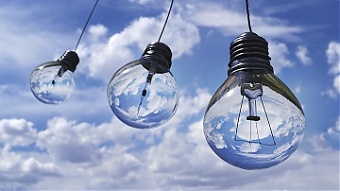Baltic States – CIS, Belarus, Energy, EU – Baltic States, Legislation
International Internet Magazine. Baltic States news & analytics
Tuesday, 13.05.2025, 11:18
Baltic states reach agreement on trade in electricity
 Print version
Print version |
|---|
"It was important to us that the agreement should include issues that are important for Estonia -- a common tariff for the use of the infrastructure and a reduction in the volume of trade with third states. The agreement reached contains these elements, and also improves the market position and prospects of our electricity producers," Estonian Minister of Economic Affairs and Infrastructure Taavi Aas said.
Timo Tatar, deputy secretary general for energy at the Ministry of Economic Affairs and Communications, said that Estonia has been oriented towards finding solutions throughout the negotiation process.
"It is important to us that market participants be treated equally, that risks relating to security of supply be sufficiently mitigated and that investment security in the Baltic electricity market should improve," Tatar said.
Under the agreement, the trade in electricity with Belarus will stop after the launch of the Astravyets nuclear power plant, and for this purpose, a system of electricity origin certificates will be introduced. To a reduced extent, the trade in electricity will be directed to the Russian-Latvian cross-section, using excess capacity from intra-Baltic trade. The trade in electricity between Kaliningrad and Lithuania will continue in the current volume.
An agreement was also reached on establishing a tariff for the use of the shared infrastructure, which will be introduced after Latvia and Lithuania adopt laws enabling to do so at the end of the first quarter of 2021. Estonian laws already allow the introduction of said tariff.
Trade in electricity between the Baltic states and non-EU states will be reduced by approximately a half by this agreement. The new tripartite methodology for calculating capacity for trade with third countries will be submitted to energy market regulators at the end of this week, after which it will be available for participants in the Baltic electricity market. The new agreement will remain valid until the synchronization of the power grids of the Baltic countries at the end of 2025.
- 26.08.2021 LLC Dizozols Investments finalizes investment attraction deal with Crowdestor with record-high profits
- 30.12.2020 Hotels showing strong interest in providing self-isolation service
- 30.12.2020 EU to buy additional 100 mln doses of coronavirus vaccine
- 30.12.2020 ЕС закупит 100 млн. дополнительных доз вакцины Biontech и Pfizer
- 29.12.2020 В Латвии вводят комендантский час, ЧС продлена до 7 февраля
- 29.12.2020 Latvia to impose curfew, state of emergency to be extended until February 7
- 29.12.2020 Linde Gas открывает завод в Кедайняйской СЭЗ
- 29.12.2020 Number of new companies registered in Estonia up in 2020
- 29.12.2020 Президент Литвы утвердил бюджет 2021 года
- 29.12.2020 В Риге можно изолироваться в трех гостиницах








 «The Baltic Course» Is Sold and Stays in Business!
«The Baltic Course» Is Sold and Stays in Business!

